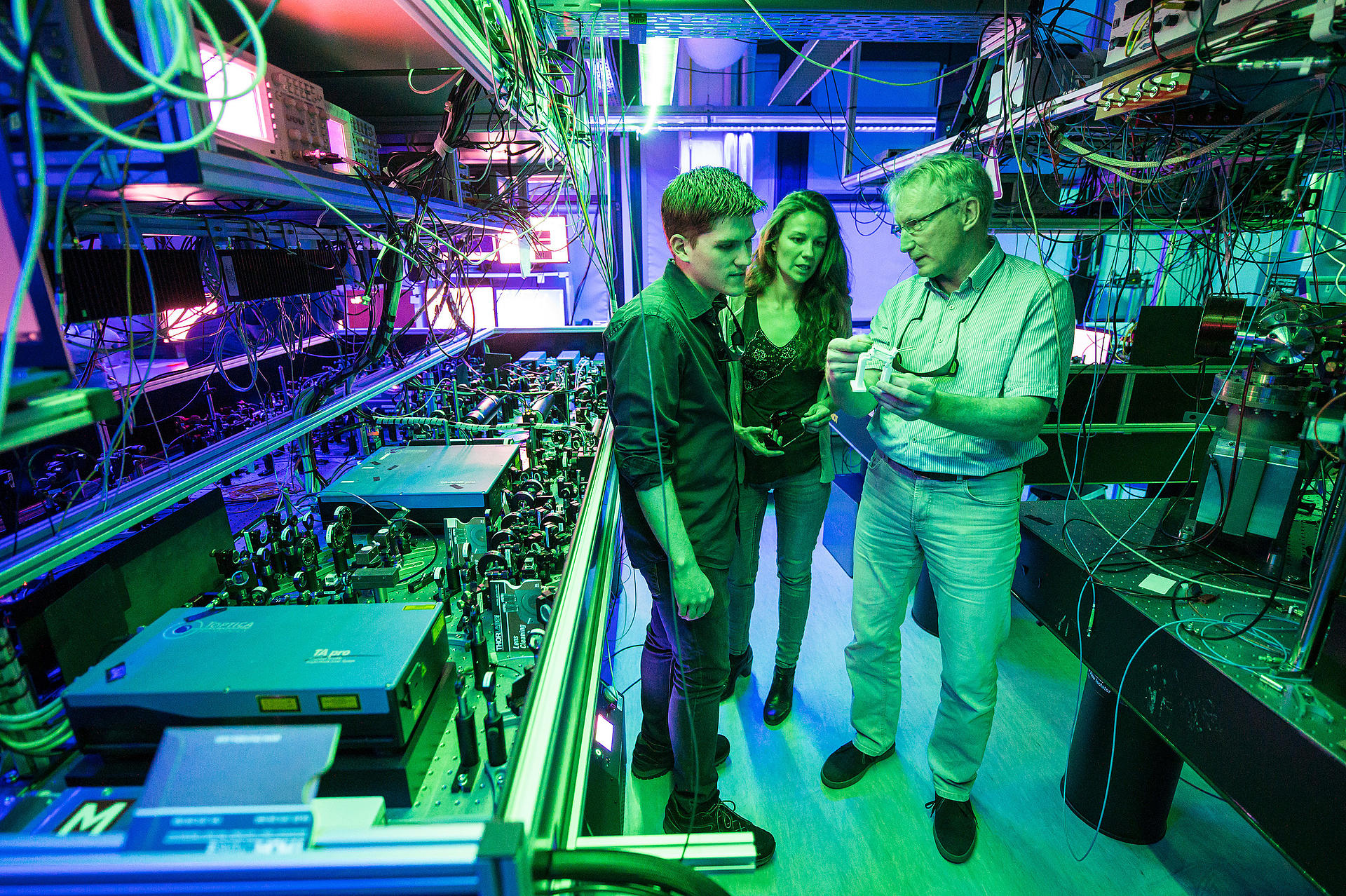Quantum Engineering

The interdisciplinary study program Quantum Engineering combines fundamentals of physics and engineering sciences with the thematic focus on quantum technology. Particular importance is attached to the interdisciplinary systems approach. Quantum technologies enable new approaches to solutions based on the laws and phenomena of quantum physics, including in the areas of sensor and measurement technology, in communication and cryptography, and in computing technology. In particular, the program teaches the fundamentals needed to research and develop new system solutions based on these technologies.
Graduates of the program will primarily work in research institutions as well as in research-oriented areas of industry, especially in high-tech areas in which quantum physical effects are transferred into application or key technologies are developed for this purpose.
The bachelor's program in Quantum Engineering was introduced in the winter semester 2019/2020, and the master's program will be offered starting in the winter semester 2020/2021.
The six-semester program, which leads to a Bachelor of Science B.Sc. degree, combines the fundamentals of physics and engineering with a focus on quantum technologies.
The Quantum Engineering program trains students to work both theory-based and practice-oriented, as well as to independently familiarize themselves with new topics. Furthermore, good communication and teamwork skills as well as effective work organization are taught. The study program includes a broad education in physical and engineering fundamentals as well as their subject-specific expansion in specialization subjects. The education is completed by interdisciplinary elements and general electives, including language courses, economics modules as well as tutoring and industrial internships.
Following the Bachelor's program, a Master's program is recommended. In addition to the Master's program in Quantum Engineering, the Master's program in Physics or Systems Engineering is also open to Bachelor's graduates under certain conditions (e.g. certain emphasis in the Bachelor's program, making up individual modules, etc.).
As a rule, the program can be started in the winter semester of each year. It is possible to start the study program in the summer semester, but there are some restrictions, especially with regard to the ability to study within the standard period of study. Prospective students who wish to begin their studies in the summer semester are therefore recommended to attend an advising interview.
Quantum Engineering means a cross-disciplinary education between basic sciences, especially physics, and application-oriented engineering sciences, especially systems engineering. The program provides in-depth training in the complementary core areas of physics and engineering, targeted at the research, development and realization of quantum technologies. In addition, students can set individual emphases for a theoretical, experimental, or applied profile.
Students take courses from the core areas of quantum physics and systems engineering and deepen these in the context of subject-specific elective courses, seminars and (project) internships, which can be selected from a wide range of offerings. The general elective courses serve to further deepen the students' knowledge, to put it into practice and to acquire interdisciplinary scientific skills, for example in economics modules or language courses. In addition, students can incorporate employment as a tutor at the university or in the context of a professional internship into their studies. A laboratory project with an associated project seminar serves as a lead-in to the master's thesis, which is written in close integration with a working group.
Graduates of the "Quantum Engineering" program have a wide range of career opportunities. They can pursue a doctorate and work in research or take up jobs in high-tech development, manufacturing or sales in the field of highly topical quantum technologies, which are currently on the verge of making the leap from the research world to widespread application.

